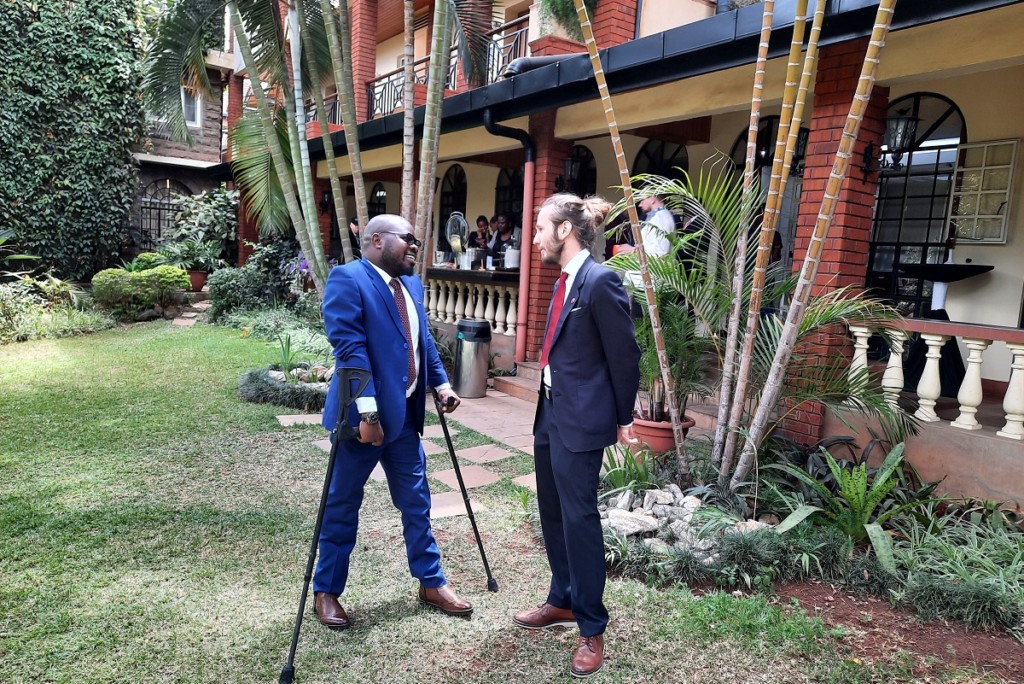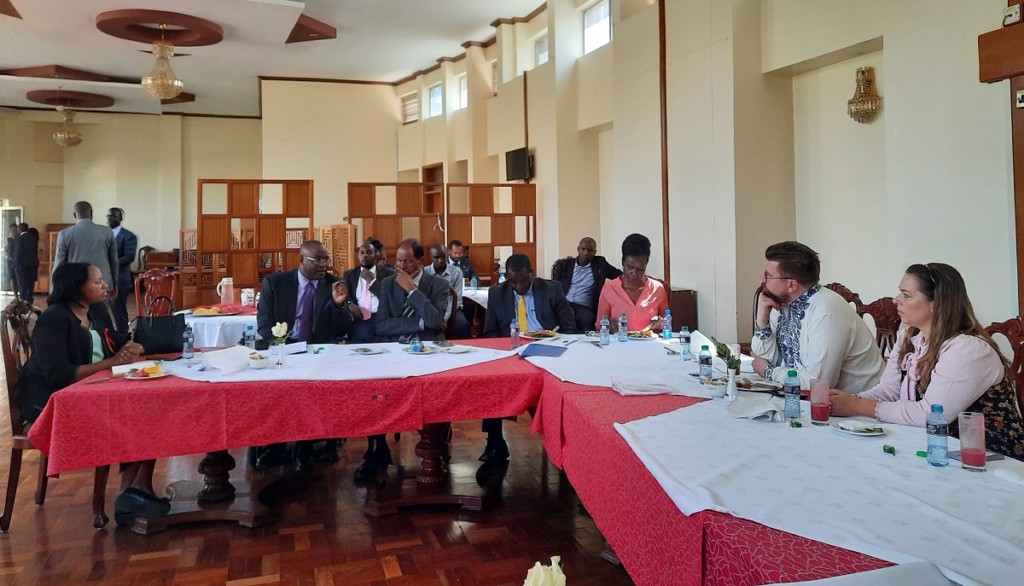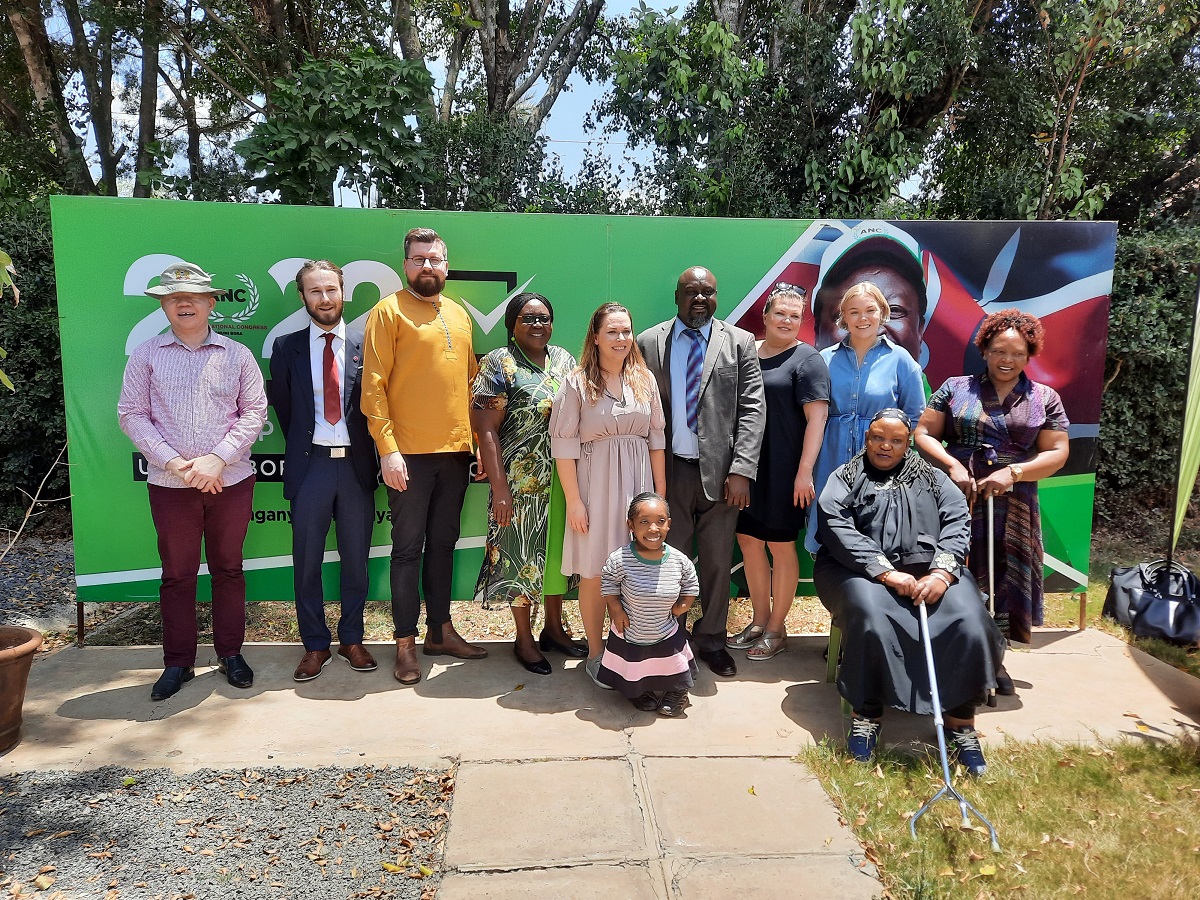Persons with disabilities (PWDs) are underrepresented in politics and political parties both in Finland and globally. Demo Finland published a report on the participation of PWDs in Finnish parties in February 2022 and, in co-operation with all parliamentary parties, established a working group whose purpose is to promote the participation of PWDs in Finnish parties and to monitor and map the progress of the equality and accessibility of political party activities in Finland. The working group has a representative from each of the nine parliamentary parties.
In the face of globally shared challenges, peer learning and sharing of experiences and good practices across party lines and between countries is both beneficial and necessary. In line with this, the multi-party working group on participation of PWDs in Finnish political parties draws from Demo Finland’s programme in Kenya supporting disability inclusion in political parties.
Study visit to Kenya
Party representatives from Demo Finland’s multi-party working group and the vice-chair of the parliamentary co-operation group on disability issues (VAMYT), MP Noora Koponen (Greens), travelled to Nairobi in October for a study visit. The delegation learned about the results of the Kenya Inclusive Political Parties (KIPP) programme implemented by Demo Finland and our partner Westminster Foundation for Democracy (WFD) as well as about the experiences of the political parties involved in the programme in promoting and mainstreaming disability inclusion.
The goals of the study visit were to learn about the disability inclusion work of Kenyan parties and to gain new ideas about possible concrete goals and measures for strengthening the political participation of PWDs both within political parties and in multi-party co-operation in Finland. The purpose was also to collect examples of good practices in Kenyan political parties which may be applicable in Finnish political parties.

Actions with set targets lead to changes
Demo Finland in collaboration with WFD has supported the political participation of PWDs in Kenya since 2020. During the programme, several Kenyan parties have taken concrete steps to strengthen the inclusion of PWDs. The working group met the parties involved in the programme and heard about these advances.
The parties have, for example, established disability leagues and reviewed and updated their party documents and structures to be more inclusive. In addition, political parties, in co-operation with civil society organisations, have jointly drafted 10 minimum standards of inclusion for political parties in Kenya. The minimum standards have been taken up by the official responsible for the registration of political parties in Kenya, the Office of the Registrar of Political Parties.
Annica Tallqvist, Executive Assistant at the Swedish People’s Party and member of Demo Finland’s working group reflects on meetings with Kenyan parties: “It was great to see how the parties took inclusion issues seriously. Almost all parties had disability leagues, which help PWDs to enter politics.”

During the visit, the group also met the technical working group of the KIPP programme, which supports and oversees disability inclusion in the political parties. The technical working group consists of different parties on a multi-party basis as well as civil society organisations of persons with disabilities. The working group has encouraged political parties to establish disability leagues as formal party organs, conducted public communication on issues of disability inclusion and supported legal processes in cases where the parties or the electoral commission have not met the minimum requirements of representation set by the constitution.
The delegation visited the Parliament of Kenya and met the Kenya Disability Parliamentary Association KEDIPA, an association of parliamentarians with disabilities and parliamentarians who have PWDs in their family. As in several other meetings and discussions with organisations of PWDs, party members and politicians with disabilities, the discussion centred around the implementation of laws guaranteeing the inclusion of PWDs at different levels, guaranteeing sufficient resources and tackling negative stereotypes related to PWDs.
After the meetings, MP Noora Koponen highlighted the need to identify existing obstacles to becoming active in politics. In order to permanently increase the meaningful participation of PWDs, it is crucial to remove the obstacles.
The work continues in Finland
The first steps towards stronger participation of PWDs in Finnish political parties have been taken, but there remains a lot of work to do. After the study visit, Demo Finland’s working group had a round table discussion with the parliamentary co-operation group on disability issues VAMYT, during which participants of the study visit shared lessons learned from the trip and the group discussed concrete ways in which Finnish parties can improve the participation of PWDs in politics and in political parties at all levels.
“Even though many things have already been done well in parliamentary co-operation, we still have a lot to do in terms of how to get PWDs more strongly involved in politics. The quotas in Kenya for parties to have candidates with disabilities on their lists in elections made me think about whether Finland could have something similar”, reflects MP Noora Koponen.
Annica Tallqvist talks about the co-operation of parties: “Co-operation between parties is very important. Besides, co-operation is very easy when it comes to such an important topic. It seems that cross-party co-operation is necessary in this matter. We can learn from each other and improve inclusion together. The inclusion of PWDs does not look at political background or values and is just as important regardless of which party you identify with. It’s great to be involved in working across party lines and to notice how inspiring and useful it is.”
Demo Finland’s multi-party working group will continue its work next year and will draw on the lessons learned from the programme in Kenya and the study visit.

